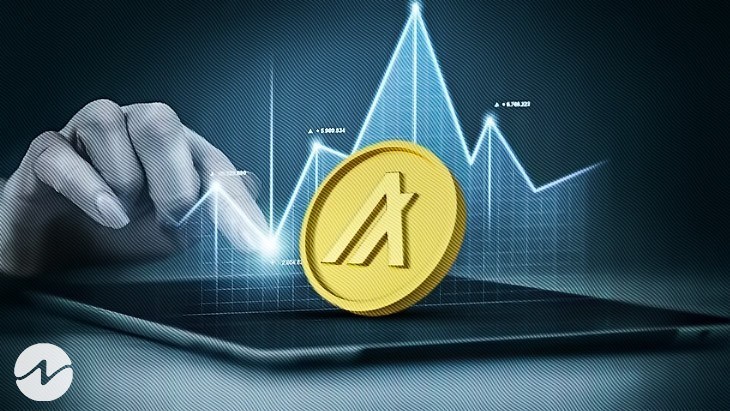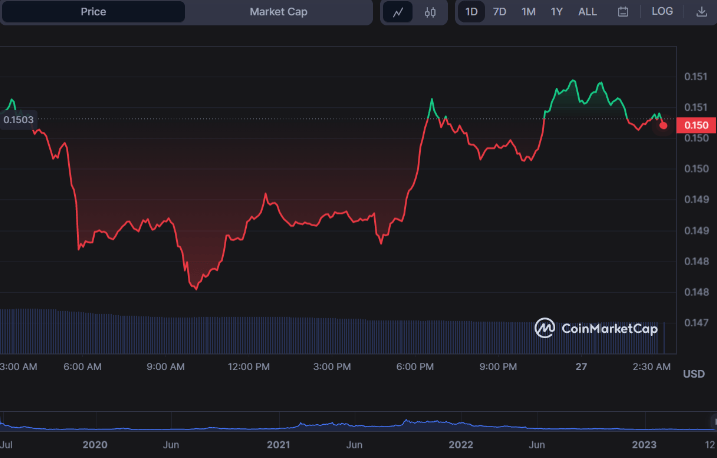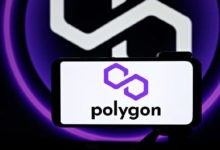Battle for Blockchain Supremacy: Algorand’s Resilient Retreat to 52 Weeks Low

- Ethereum vs. Algorand: smart contract battle heats up with innovations.
- Algorand’s scalability solution: pure proof-of-stake consensus challenges Ethereum.
- ALGO price retraces; bulls defend 52-Week low as market optimism persists.
In the ever-evolving blockchain technology landscape, Ethereum has long held the throne as the leading smart contract platform. However, a rising contender named Algorand has been garnering attention with its unique approach and technological advancements.
Understanding the Foundations:
Ethereum and Algorand share the goal of enabling decentralized applications and smart contracts. While Ethereum pioneered smart contracts, Algorand prioritizes scalability, security, and speed. Its focus on high-performance distributed systems makes it a standout contender in the blockchain space.
The Scalability Challenge:
Scalability has been a persistent challenge for Ethereum, often resulting in network congestion and high transaction fees during peak periods. Algorand addresses this issue through its Pure Proof-of-Stake consensus mechanism, which ensures fast and secure transactions without compromising decentralization. By using a variation of the Byzantine Agreement protocol, Algorand achieves consensus within seconds, offering a scalable solution for developers and users.
Smart Contracts and Development:
Ethereum’s Solidity programming language has been widely adopted, making it the industry standard for developing smart contracts. However, Algorand introduced a new language called TEAL (Transaction Execution Approval Language), which offers a simple and secure environment for building smart contracts. While Ethereum’s extensive developer community gives it an edge regarding available resources and support, Algorand’s focus on ease of use and security could attract new developers to its platform.
Decentralized Finance (DeFi) and Algorand:
Decentralized finance has emerged as a transformative force within the blockchain industry, enabling financial services without intermediaries. Ethereum’s dominance in the DeFi space is undeniable, with many decentralized applications and protocols built on its platform. Algorand, however, aims to make significant inroads into DeFi by offering a scalable infrastructure, lower transaction fees, and an improved user experience. With its unique features and innovation potential, Algorand has the opportunity to challenge Ethereum’s position in the DeFi ecosystem.
Adoption and Partnerships:
Ethereum has a substantial head start in terms of adoption and partnerships. It has established a strong network effect, with many projects and developers already integrated into its ecosystem. However, Algorand has been making significant strides in attracting partners from various industries, including finance, supply chain, and real estate. Notable collaborations and initiatives, such as the Algorand Foundation’s support for blockchain-based voting, indicate the platform’s potential for wider adoption.
Community and Governance:
The long-term success of a blockchain platform depends heavily on the robustness of its community and governance system. While Ethereum’s decentralized governance mechanism might be cumbersome and controversial, it allows stakeholders to determine the platform’s future.
Algorand, on the other hand, incorporates a hybrid governance model, combining decentralized decision-making with specific mechanisms for protocol upgrades. Balancing decentralization and efficiency, Algorand’s governance model could attract users seeking a more streamlined decision-making process.
ALGO/USD Market Analysis
In the last 24 hours, the Algorand (ALGO) market has experienced a sharp retracement, with bears driving the price to a new 52-week low of $0.1475, where support was established. ALGO bulls’ attempts to recover were thwarted by resistance at the 24-hour high of $0.1504. However, as of press time, bulls were in command of the ALGO market, causing a 0.05% increase to $0.1504.
ALGO’s market capitalization increased by 0.02% during the decline to $1,088,597,789, while the 24-hour trading volume decreased by 29.53% to $39,061,135. Despite the recent setback, this move suggests investors remain optimistic about ALGO’s future.
If the bulls break through the 24-hour high of $0.1504, the next resistance e level could be $0.1550. However, if bears seize control and drive the price below the 24-hour low of $0.1475, the next support level could be $0.1430.

ALGO/USD 1-day price chart (source: CoinMarketCap)
In conclusion, as Algorand challenges Ethereum’s dominance, its scalability, security, and innovation potential make it a formidable contender in the blockchain space. The ALGO market shows resilience despite recent retracements, reflecting optimism for its future growth.






 Bitcoin
Bitcoin  Ethereum
Ethereum  Tether
Tether  USDC
USDC  TRON
TRON  Dogecoin
Dogecoin  Cardano
Cardano  Monero
Monero  Bitcoin Cash
Bitcoin Cash  Chainlink
Chainlink  LEO Token
LEO Token  Stellar
Stellar  Zcash
Zcash  Litecoin
Litecoin  Hedera
Hedera  Dai
Dai  Cronos
Cronos  OKB
OKB  Tether Gold
Tether Gold  Ethereum Classic
Ethereum Classic  KuCoin
KuCoin  Cosmos Hub
Cosmos Hub  Gate
Gate  Algorand
Algorand  Dash
Dash  VeChain
VeChain  Tezos
Tezos  Stacks
Stacks  TrueUSD
TrueUSD  Decred
Decred  IOTA
IOTA  Theta Network
Theta Network  Basic Attention
Basic Attention  NEO
NEO  Synthetix
Synthetix  Qtum
Qtum  0x Protocol
0x Protocol  Ravencoin
Ravencoin  Zilliqa
Zilliqa  DigiByte
DigiByte  Nano
Nano  Siacoin
Siacoin  Holo
Holo  Numeraire
Numeraire  Waves
Waves  Ontology
Ontology  Status
Status  Enjin Coin
Enjin Coin  BUSD
BUSD  Hive
Hive  Pax Dollar
Pax Dollar  Lisk
Lisk  Steem
Steem  Huobi
Huobi  OMG Network
OMG Network  Bitcoin Gold
Bitcoin Gold  NEM
NEM  Augur
Augur